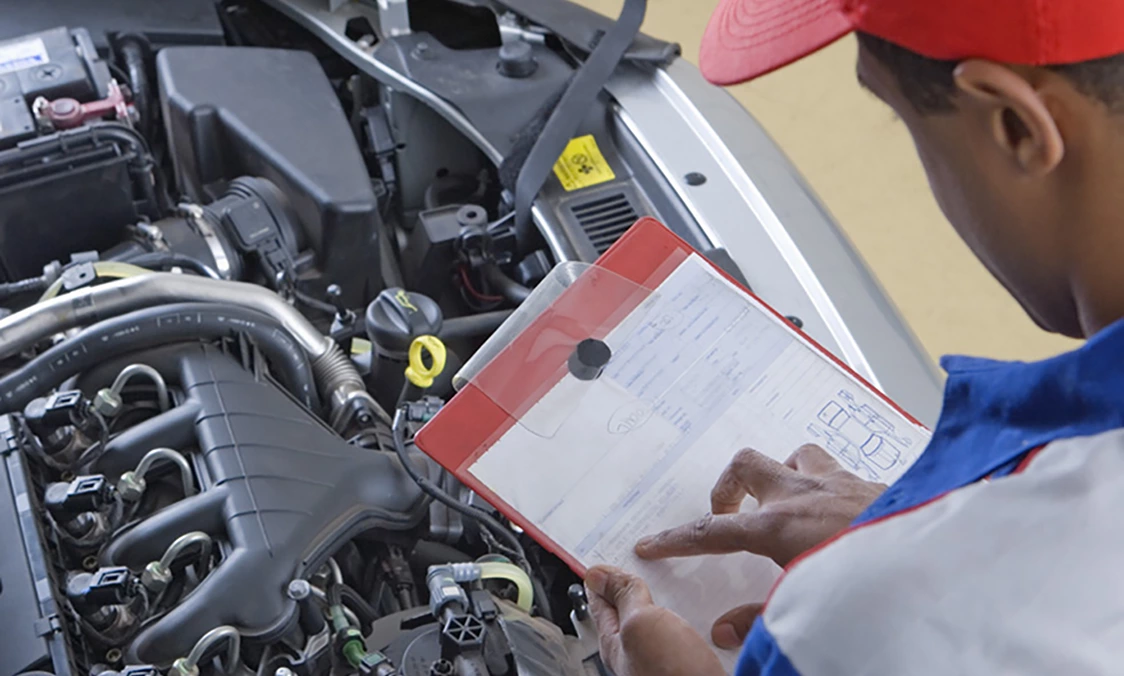PCV Valve: What Is It?
January 23, 2017
Most Troy drivers know something about preventive maintenance on a vehicle. We know we should routinely replace the oil and wiper blades and other fluids. But have you heard of a PCV valve ? This little car part needs to be replaced regularly or it can cause some serious problems in your vehicle engine.
PCV stands for Positive Crankcase Ventilation. The crankcase holds your motor oil and is located at the bottom of your engine.
When fuel is burned in your engine, it produces waste gases that are mostly vented out through your exhaust system. But some of these gases push their way past the pistons and into the crankcase. There, these gases can mix with motor oil to produce oil sludge, which can damage vehicle engine parts through corrosion and by clogging engine passages. Troy vehicle owners should be advised that if the engine is running at high speeds, these gases can also cause pressure inside the crankcase to build up. This pressure, in turn, can blow gaskets and damage seals, leading to oil leaks.
The waste gases that leave the engine are comprised of about 70% unburned fuel. They used to be vented off the crankcase into the atmosphere. But starting in 1964, laws mandated that these gases be recaptured. Manufacturers began installing PCV systems, which recycled the gases into the air intake system where they could be mixed with fuel and sent to the engine to be burned.
The PCV valve is a one-way valve attached to the crankcase. Waste gases exit the crankcase through the valve but cannot enter.
Over time, the waste gases leave deposits on the PCV valve that can gum it up. So it needs to be replaced occasionally. This is an inexpensive part of preventive maintenance that is often overlooked, but which can have very expensive consequences. It's good auto advice to keep this little valve clean and working well.
In order to maintain efficient circulation, the PCV system also has a breather tube that allows clean air to enter the crankcase. This air is usually filtered through the engine air filter. But some vehicles have a separate air filter for the breather tube called the breather element. If this is the case with your vehicle, proper maintenance of the PCV will include replacing this element. To find out whether your vehicle has this type of PCV system, check your owner's manual or ask your service advisor at Auto Lab Troy.
The PCV system reduces harmful vehicle emissions. The maintenance it requires is simple and inexpensive at Auto Lab Troy. A fouled or damaged PCV system can lead to serious engine damage for Troy drivers.
Let's all learn to practice good car care. It's good for our wallets, and it's good for our Michigan environment.
Auto Lab Troy
2790 West Maple Rd.
Troy, Michigan 48084
(248) 643-7690
Need Service?
More articles from Auto Lab Troy

It's (Not) Complicated (Engine Air Filter)
December 22, 2024
While many components of your vehicle are complex and composed of lots of mechanical and electrical parts, there's one that isn't complicated but still important. It's your engine air filter. (And, we should point out, the engine air filter isn't to be confused with the cabin air filter. The ca... More

Putting a Stop to Brake Problems (Brake Service)
December 15, 2024
It's safe to say that most drivers take their brakes for granted. You press on the brake pedal and the vehicle slows down or stops. It's easy to see why it is so important for your vehicle's brakes to be working correctly. Brakes are an important safety feature of any vehicle. When it comes to... More

Why is Air Not Coming Out of My Vents?
December 8, 2024
You climb inside your vehicle, start the ignition, and reach for the fan control for the heating or air conditioning. But when you try to crank it up, no air comes out of the vents. It can make for a very uncomfortable trip, whether its hot or cold outside. Its important for the comfort of you a... More










